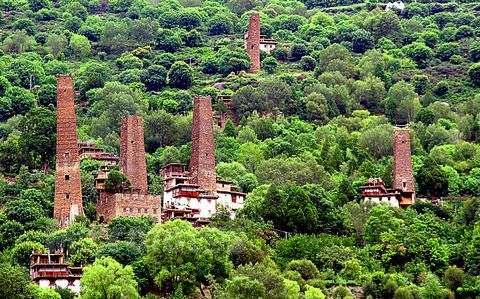Experts provide insights on protection of intangible cultural heritage

The crafts of building Tibetan Diaolou, multi-storied defensive village houses, have been included in the national intangible cultural heritage.
He Zhike, director of the Protection Center for Intangible Cultural Heritage from Yuanyang County, Yunnan Province:
It requires multiple foundations to protect intangible cultural heritage in the regions where ethnic minorities reside. Strong support from local organizations is necessary. The work would be difficult to carry out if the relevant departments failed to pay enough attention. Leaders should be empowered to staff the project and direct fundraising. They’d better have a deep affection for the region and thorough familiarity with the cultural heritage as well as the inheritors’ production and living conditions. Also, they should master the languages used in ethnic minority areas. In addition, all team members should understand local beliefs and taboos in advance while any filming or photography must be made with consensus.
Bao Jiang, a research fellow from the Institute of Sociology at the Chinese Academy of Social Sciences:
When examining the rescue work’s achievements, I found that several aspects can be improved from the perspective of video dissemination. First, the form of expression of most documentaries showcase the stories and skills of the inheritors by adopting only visual images and narrative words. The cookie-cutter model should be diversified through greater efforts. Also, some video works tell stories from the overhead view, making it difficult to resonate with the audience. The teams can draw experience from some popular documentaries, such as Masters in the Forbidden City which put viewers in the position of a passionate visitor to the place. Finally, inheritors also have the need to socialize. Producers should find ways to get deep into their living world, so that the works can become more expressive and appealing.
Zhu Weihua, a professor from Guizhou Normal University:
The cultural connotations of these traditions are central to the project. It is crucial to reach out to the viewers, requiring experts to participate in teams and highlight the academic significance. Guizhou Province have sought experts in particular fields from across the region to offer advice on the initial planning work, such as the interview outline of oral history, while inviting local scholars to guide the filming process because they have a profound understanding of the circumstances there. Guizhou Province gained three excellent awards in this project mainly because of their meticulous operation.
This article was translated from Guangming Daily.
(edited by MA YUHONG)

 PRINT
PRINT CLOSE
CLOSE